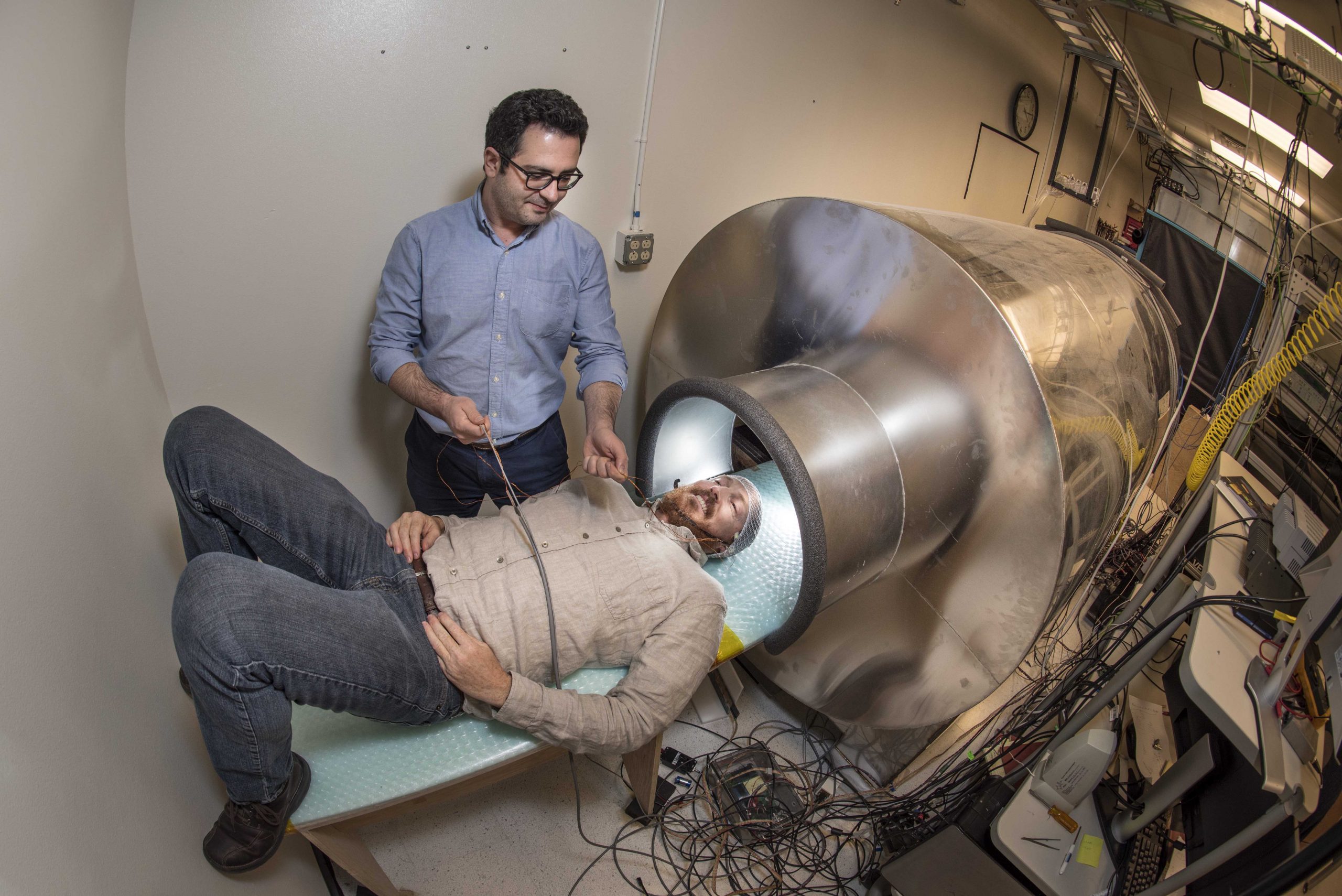
Patient-friendly brain imager gets green light toward first prototype
Quantum sensor enables flexible, wearable design
Functional brain imaging systems have a wide range of applications from clinical to research focused on studying the brain dynamics. Invasive systems provide a large information volume compared to their non-invasive counterparts as the electrodes are in vicinity of firing neurons. However, they are mainly used for surgical preplanning for epileptic patients and are not a viable system for general research participants. In this work, we address the low information volume of non-invasive brain imaging systems by leveraging the benefits of quantum sensors, i.e., optically pumped magnetometers (OPMs). OPMs do not need cryogenic temperatures for operation and can conform to the subject’s scalp, hence, providing a spatiotemporal resolution rivaling that of invasive electrodes. We develop whole head coverage, functional brain imaging systems using the quantum sensors that we design, develop, and continuously improve in our laboratory.
Areas of Research
Developing non-invasive functional brain imaging systems using patented quantum sensors (OPM) developed at Sandia National Laboratories.

Featured Projects
Sandia researchers detected and quantified a systematic error in OPM sensors and coined this error term “Cross Axis Projection Error (CAPE)”. This research, published in Neuroimage, drew attention to this effect worldwide
A novel solution for brain imaging systems was devised by Sandia scientists though the calibration and localization of OPM sensors from the use of VSH
Sandia developed one of the first pioneering non-invasive and multichannel OPM arrays for detecting brain signals with high fidelity
Sandia researchers patented a special OPM which provides wider bandwidth and simultaneous measurement on all cartesian axes